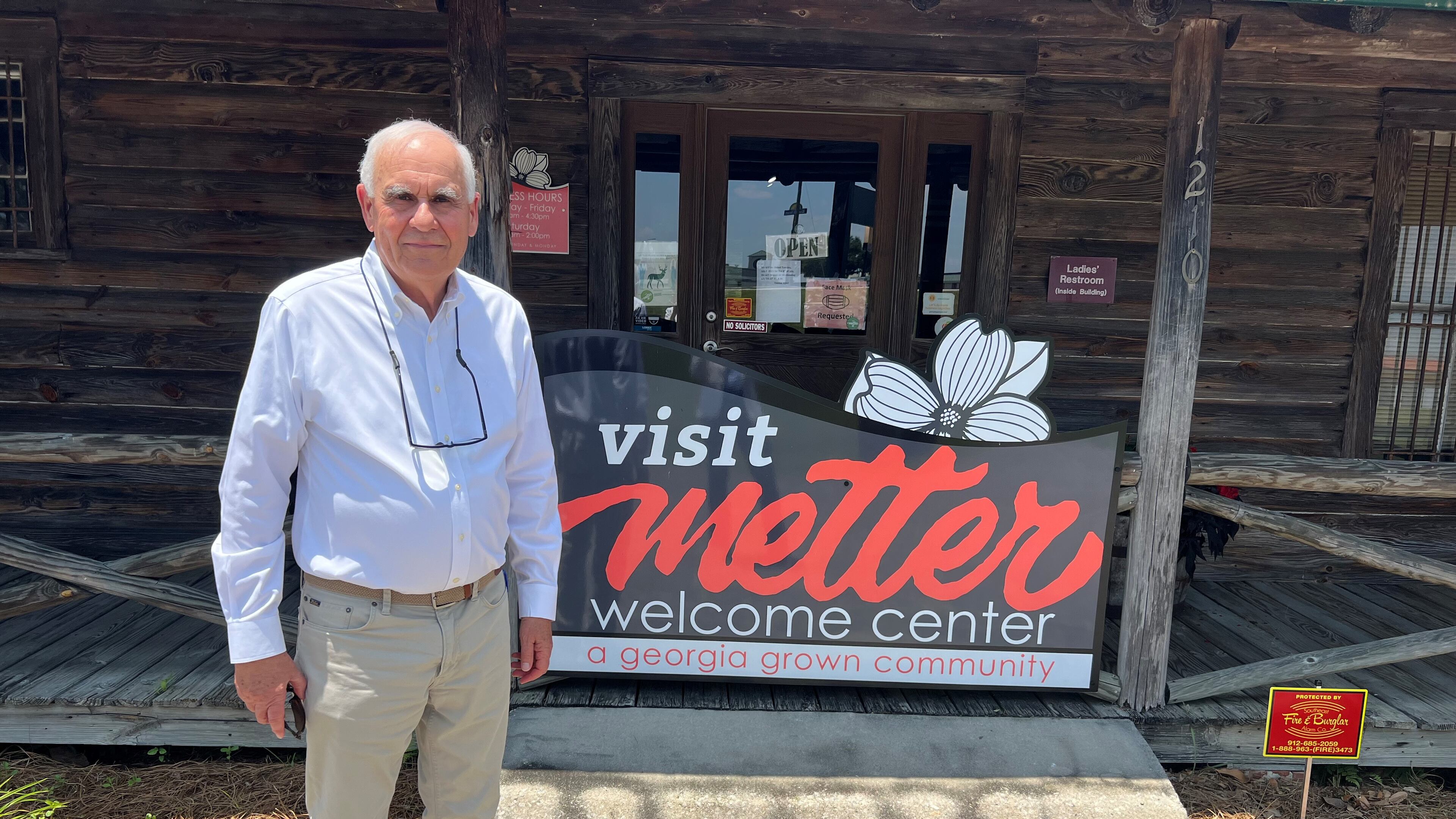OPINION: In Metter, a small-town mayor ready for change

I chose Metter as the first stop on my Georgia politics road trip this week because it’s a place you might have stopped at, too.
As the halfway mark between Macon and Jacksonville on 1-16, Metter is a popular pitstop for gas or a bite to eat at the roadside Zaxby’s or McDonald’s during road trips to and from the coast.
“Everything’s better in Metter!” the local signs read.
But drive just a bit further east from the Metter stop, past the fast food and away from the interstate, and you’ll find a rural town like so many others in central and South Georgia, with town square, a stately county courthouse, and a mayor looking for a way to grow the population that’s been stagnant since the 1990’s.
“If you’re not going forward, you’re going back,” Mayor Ed Boyd told me during lunch at Jomax Barbeque in Metter (order the fried squash, by the way).

At 71, the soft-spoken, white-haired former insurance business owner could have already retired to a quiet life in the place he’s lived for more than 40 years. Instead, he’s knee-deep in ideas and plans for what Metter might look like in the future.
One lucky break for Metter is its location. Unlike the most out-of-the-way spots in the state, Metter is not just prominent on I-16, it also sits about 45 miles from Ellabell, Ga., the site of the massive Hyundai EV plant that’s now under construction and slated to start production in 2025.
That makes it within driving distance for some of the eventual 8,100 new Hyundai workers and a possible site for one of the dozens of suppliers expected to crop up near the factory.
But the potential growth brings anxieties, too. How many new people might move to town? Where would they live? Would their children crowd the local schools? Is there infrastructure to support the future residents ?
Even with the potential challenges, Boyd sees the potential for growth as a net positive for the area.
“If you want to go backward and you want to have a declining tax base, more power to you. But that is not my vision of a successful community,” he said.
The idea that a new factory could revive this area of the state is a full-circle story. Metter watched its textile industry and local print shop close in the 1990s and take jobs and opportunities away with them.
The City of Metter now has a 37% poverty rate, according to Census figures, and budging that number is difficult when a large elderly population means many of the residents are out of the workforce. Some of the more affluent residents live elsewhere in Candler County, outside the city lines.
Looking to attract more jobs and prosperity to Metter, the mayor hired Heidi Jeffers to start an economic development effort for the town, a concept often reserved for large cities with convention centers and big budgets. Boyd called that decision the “game-changer.”
“The question wasn’t how can we afford to hire Heidi, it was how can we afford not to?” he said.
Working with the state Department of Agriculture, Jeffers has started an agriculture incubator in Metter like the tech incubators in Atlanta. Small agriculture-based companies rent office space there and come in for business training and seminars. A recent event featured the head of Atlanta’s Federal Reserve.
“It helps strengthen local businesses that are here, but it also helps strengthen businesses in our region,” she said. “We found that the more people we could help in our region, the stronger everyone will be.”
On the day I visited the incubator, Colby Conaway from Better Fresh Farms was inside what looked like a school trailer, but was actually the site of a tiny, air-conditioned hydroponic lettuce farm. Conaway was transferring seedlings to larger pots, which would then grow in tidy rows in the trailer away from typical Georgia heat, storms, and insects.

While plenty of small-town dwellers around Georgia are worried about the changes that could be coming to their counties, Boyd’s change-is-good point of view is a distinctly Atlanta view of the future that he got growing up in DeKalb County. He moved south for college at Georgia Southern and never moved back.
After living in both places, he thinks Metter has the kind of opportunities that large cities can’t offer.
“If I lived in DeKalb County, I wouldn’t have had the chance to be the mayor or be president of the chamber of commerce, or president of the Rotary,” he said.
He said the same about the incubator that Jeffers is running. “It’s supporting small entrepreneurs, giving people a chance to work for themselves, to set their own hours, to be their own managers, to not have to punch a clock.”
Even with a population in the thousands, Metter is still small enough that having lunch at Jomax meant running into the superintendent of schools, the head of the chamber of commerce, and two county commissioners. Two grabbed a seat next to us to chat. Another ribbed Boyd for talking to a reporter from Atlanta. “You’ve been here so long, I need to bring y’all a pillow!” one laughed.
Since this is a Georgia politics road trip, I had to ask how the potential growth in the area might change the politics in Candler County, which gave Donald Trump 71% of the vote in both 2016 and 2020.
Nobody knows. It’s not clear how many people might move to the county, and, if people do come, who they’ll be. A couple from Ohio recently called the local bank hoping to move to Metter. They’d both just gotten jobs at the Hyundai plant in Ellabell.
Mayor Boyd will keep trying to move the town forward as long as he’s in office, no matter the politics.
“I have the same motto as the Hard Rock Cafe,” he said. “Love all, serve all.”


